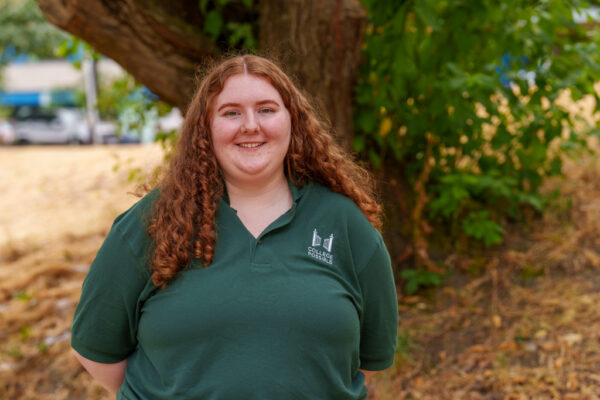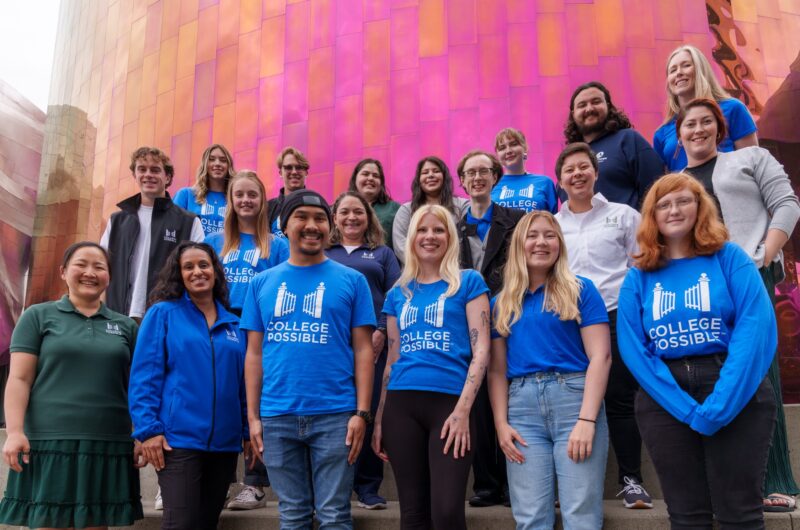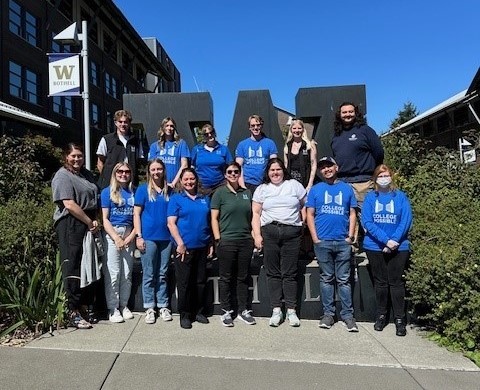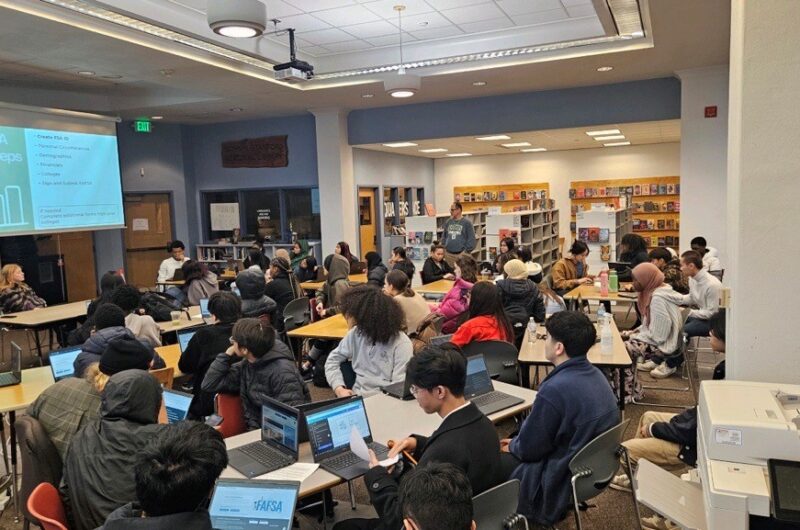We recently sat down with Anna Brigden, access program manager at College Possible Washington, to discuss the preparation that occurs before our students start their academic coaching journey. Our conversation highlighted College Possible’s commitment to making college admission and success achievable for students from under-resourced communities.
Anna manages school partnerships and supervises a group of AmeriCorps members (coaches), most of whom work in the Renton School District. This is her fourth year with College Possible Washington. She spent two years as a coach before being promoted to access program manager. Check out the conversation between Lauren Treacy, executive director at College Possible Washington, and Anna, to hear what pre-school-year prep looks like.
Lauren: Can you tell us what the student recruitment process looks like at College Possible Washington and what your role is in supporting student recruitment for our site?
Anna Brigden: There are two main recruitment times, fall season focuses on junior and senior high school students, while spring season we focus on recruiting sophomores and juniors.
A lot of the coach role is being visible in outreach which looks like: Participating in school visits, tabling at events and school lunches, classroom presentations, and coordinating with school counselors and other career center staff to identify students who might benefit from the program.
Introducing students to College Possible is far more involved than you might think. A common misconception is that students naturally gravitate toward programs like College Possible. Unlike well-known extracurricular programs, College Possible might not be on the radar of many students and their families. The reality is, a proactive outreach by our team to bridge the initial gap is necessary to get the word out about what our program is and who it can support. A significant amount of time and effort is spent ensuring students and their families are aware of the opportunity available to them with College Possible Washington.
Lauren: What trends have you noticed in student recruitment recently? Are there any new strategies being tried out this year?
Anna: In the last couple years, the partner schools that are more successful in recruitment are ones that support us being visible and provide the most opportunities for us to participate in school activities and events – especially early in the year. This way, we let students know right when school starts (or even before) that we are on their high school campus as a support.
Lauren: How do recruitment approaches vary across the schools you work with?
Anna: Every school’s recruitment strategy looks different depending on the unique student community, our staff liaison, and what spaces schools already have set up for student engagement. At some of our high schools, we collaborate with other access programs which only bolsters our recruitment. Some schools rely on classroom presentations around college topics. This piques student interest and will trickle down to more student interest in participating in our program overall. Some schools have a lot of college support and rely on the individual one-on-one support our coaches can give students throughout the year.
Our presence in school events, open houses, and personal engagements are critical to ensure students and their families are well-informed and feel a personal connection right from the outset.
For example, at Nathan High School, we tabled at “Raider Day,” a back-to-school event where we talked to staff, parents and students before school even started. We were also there at freshman orientation because it’s never too early to introduce our program and the support we provide. At Lindbergh High School we are part of Junior and Senior Blitz where the students get to meet the counselors one on one and can be referred to us.
Lauren: What kind of outcome would make you feel like this year’s recruitment was a success?
Anna: What feels successful is when a coach has a cohort of students that feels like its own community. The students will remind each other to come to sessions and connect with each other outside of College Possible Washington time. The students organically will connect and then further support each other on their college journey, which is really special.
Our coaches do more than advise. They’re active in school events, helping College Possible Washington become a household name to families in King County. Through these events, they answer questions and build important connections.
The bond between students and coaches grows stronger over the academic year, becoming a key part of our program’s success.
When asked if there was anything else to share about recruitment, Anna was clear about the role of our coaches in students’ success saying, “Our coaches are the rock stars [of recruitment]. We wouldn’t have a program without their hard work!”



